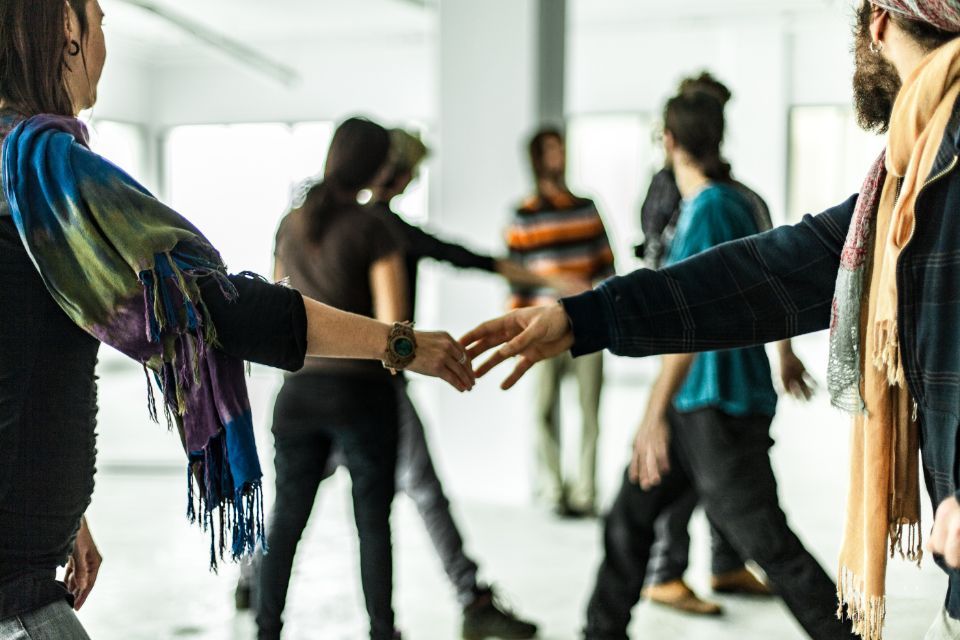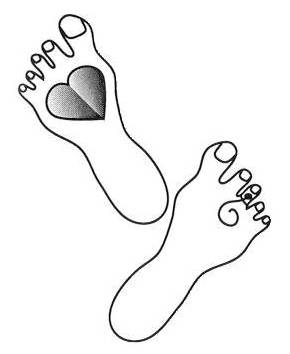Dance & Drama Therapist in North Carolina
Want to have more play in your life and use play to cope with difficult situations? Then call Angela for drama therapy and dance/movement therapy services in Greensboro, NC,. Angela at Greensboro offers a free telephone consultation and both in person and virtual or remote therapy sessions.

Slide title
Write your caption hereButton
Why choose Dance/Movement or Drama Therapy?
These therapies work in the experiential modalities of expressive art therapy that focuses upon enhancing the connection between the mind and the body. Dance/Movement Therapy and Drama Therapy foster growth by expanding movement repertoires and by encouraging individuals within a therapy setting to practice movements and role playing that allows for healing and growth on physical, emotional, and spiritual levels.
-
Learn More
Dance/movement therapy and drama therapy can make the difference between resistance and relationship in the therapy setting by creating non-threatening group and individual therapy exploration of feelings and therapeutic issues, such as self-esteem or personal insight.
I like to think of dance/movement therapy and drama therapy as additional tools to the traditional verbal therapies. Instead of only sitting and talking about your problems, feelings, and experiences, you can add the opportunity to get up and use therapy to express them through dance, movement, and drama. For example: Showing/expressing anger in your body is much more powerful than sitting still and talking about it.
When feelings and emotions are expressed through the body and mind then total, integrated therapeutic healing can take place. Dance/movement therapy and drama therapy allow for this integration in an active and often fun manner.
Who can benefit from dance/movement therapy and drama therapy? Dance/movement therapy and drama therapy can be beneficial to everyone and all ages. Populations may include physical and sexual abuse survivors, people recovering from substance abuse, the developmentally and physically disabled, at-risk youth, dysfunction families, prison inmates, and the public. Experiences occur in and outside of therapy settings.
What is
Drama Therapy?
Drama therapy evolved from the experience and research of psychotherapists, teachers, and theater professionals who recognized that sometimes traditional verbal therapies were too rigid to permit clients to confront and work through individual disturbances. The balanced verbal and non-verbal components of drama therapy with its language of metaphor allows clients to work productively within a therapeutic alliance.
-
Learn more
Registered Drama Therapists are trained in theater arts, psychology, and psychotherapy. Training includes improvisation, puppetry, role-playing, pantomime, mask work, and theatrical production. Training in psychology and psychotherapy includes theories of personality, group process, and supervised clinical experience with a broad range of populations. The Registered Drama Therapist (RDT) title is awarded drama therapists who have a Master's degree which includes 500 hours of drama/theater experience, 300 hours of on-site internship in drama therapy with at least 30 hours of supervision by a RDT (or other registered creative arts therapist or credentialed master's-level mental health professional), and 1,000 paid hours of drama therapy experience
Registered Drama Therapist/Board Certified Trainer (RDT/BCT) is a Registered Drama Therapist who is a clinician or practitioner, trainer and/or a supervisor and has been a RDT for 5 years and has shown advanced training and supervisory skills in the field of drama therapy. A BCT has the responsibility of training, guiding, and mentoring individuals who aspire to becoming RDTs. The Board-Certified Trainer is a member of the faculty of the North American Drama Therapy Association. The BCT supervises the education of Alternative Route Trainees and guides them through their training toward the RDT. The BCT is responsible to the drama therapist in training, as well as to the NADT which creates the guidelines for training. The BCT is also a teacher who is well grounded in drama therapy and is familiar with its scope of practice. The BCT must also show active involvement in the association.
It can make a difference for people with...
With Alzheimer's Disease, with Chronic Illness,
with Head Injuries,
with Substance Abuse, with Developmental Disabilities and
with Physical Disabilities.
Issues being addressed are those that have been identified as key federal initiatives by the President and Cabinet officials.
For example:School Violence Prevention and Intervention
- Alzheimer's Disease Treatment
- Campaign Against Suicide
- Domestic Violence Prevention
- Substance Abuse Prevention
- Health Prevention and Promotion
- Breast Cancer Treatment
-
Learn more
With Alzheimer's Disease
In therapy experiences from the person's past are selected to trigger short and long term memory, decrease agitation, and enhance reality orientation.
With Chronic Illness
In therapy experiences distract people from pain and facilitate needed relaxation.
With Head Injuries
In therapy experiences encourage self-expression, communication and socialization, and to facilitate cognitive retraining.
With Substance Abuse Problems
In therapy the difference between denial and determination is made, experimental techniques confront the client's barriers to the recovery process.
With Developmental Disabilities
In therapy sessions are structured to teach cognitive, motor, and daily living skills and provide the opportunity to experience success.
With Physical Disabilities
In therapy experiences promote rehabilitative goals and to increase motivation and success.
Cutting-edge applications of Creative Arts Therapies are being used to address the most complex societal issues.
What is Dance/Movement Therapy?
Dance/movement therapy follows the idea that the body, the mind and the spirit are interconnected. It is a direct expression and experience of oneself through the body. It encourages individuals to embody their feelings and emotions so they can are expressed both verbally and physically. This integration achieves healing for the body, mind and spirit.
Dance/movement therapy is defined by the American Dance Therapy Association as: "the psychotherapeutic use of movement as a process that furthers the emotional, cognitive, social and physical integration of the individual."
-
Learn more
Dance/Movement Therapy is rooted in the expressive nature of dance itself and had it's beginnings in the world of dance. DMT pioneers began as dancers and incorporated psychological theories into their work.
Early pioneers include: Marion Chace 1896-1970, Blanche Evan 1909-1982, Liljan Espenak, Mary Whitehouse 1911-1979, Trudi Schoop and Alma Hawkins
-
Dance Therapy Facts
Dance/Movement Therapy Facts
- Dance/movement therapy emerged as a distinct profession in the 1940's.
- The American Dance Therapy Association was formed in 1966. It maintains a code of ethics and has established standards for professional practice, education and training.
- There are approximately 1203 dance/movement therapists in 46 states and 29 foreign countries.
- Dance/movement therapy is an effective treatment for people with developmental, medical, social, physical and psychological impairments.
- Dance/movement therapy is practiced in mental health rehabilitation, medical, educational, forensic, nursing homes, day care, disease prevention and health promotion programs.
- Dance/movement therapy is used with people of all ages, races, and ethnic backgrounds in individual, couples, family, and group therapy formats.
- Entry into the profession of dance/movement therapy is at the Master's level. The title "Registered-Dance Movement Therapist" (R-DMT) is granted to entry level dance/movement therapists who have a Master's degree which includes 700 hundred hours of supervised clinical internship. The advanced level of registry, "Board Certified-Dance Movement Therapist", (BC-DMT) is awarded only after DMT's have completed 3,640 hours of supervised clinical work in an agency, institution or special school, with additional supervision from an BC-DMT.
Dance/Movement Therapy and Drama Therapy can be beneficial to everyone and all ages. Populations may include physical and sexual abuse survivors, people recovering from substance abuse, the developmentally and physically disabled, at-risk youth, dysfunctional families, prison inmates and the general public. Experiences occur in and outside of therapy settings.
I like to think of these therapies as additional tools to the traditional verbal therapies. Instead of only sitting and talking about your problems, feelings and experiences you can add the opportunity to get up and express them through dance, movement, and drama. -Angela Wiley
EMERGENCIES:
Most urgent appointments can be accommodated within 48 hrs.
All emergencies call
911 or National Suicide Prevention Hotline at 800 273-8255.
Psychology Today
Mailing address:
5603 West Friendly Suite B 103
Greensboro, NC 27410
All Rights Reserved | Greensboro Dance & Drama Therapy, PLLC








